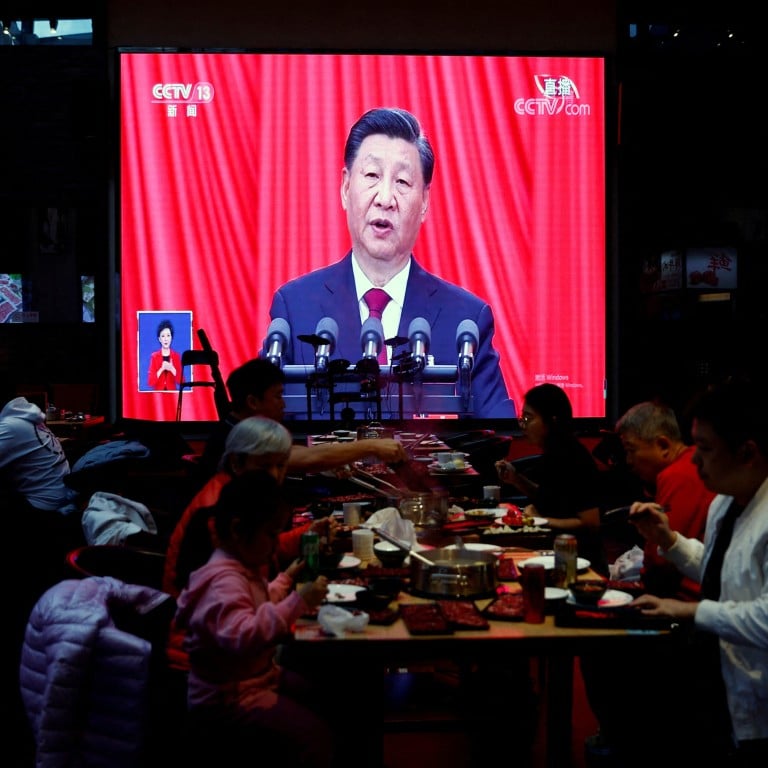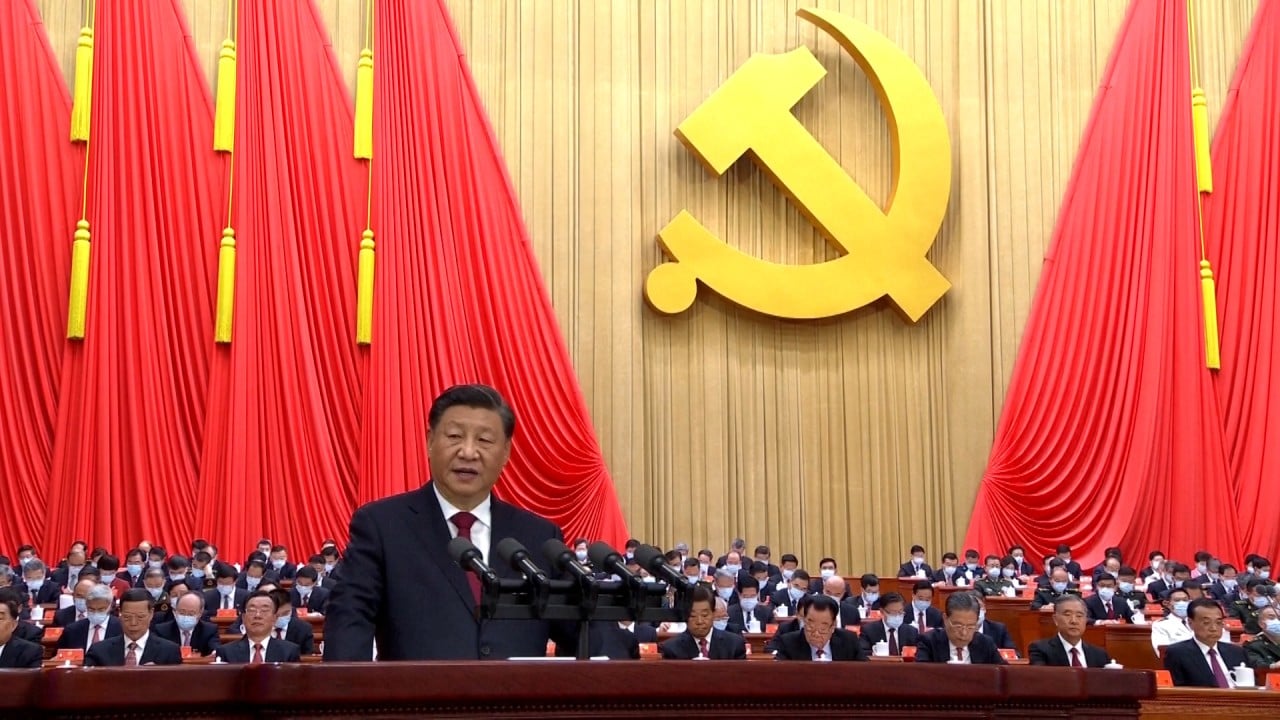
China’s ‘common prosperity’ push could boost key middle-class, but action urged to ‘bring back’ confidence
- Xi Jinping pledged to ‘substantially grow’ China’s middle-income group as a share of the total population by 2035 during Sunday’s work report to the 20th party congress
- Analysts have urged greater development of the private economy that accommodates a vast majority of the country’s jobs, growth drivers and revenue
A greater emphasis on wealth distribution and tacking inequality via “common prosperity” could herald fresh efforts to boost China’s middle-class households, but Beijing has been urged to roll-out immediate and concrete measures to restore confidence that has been faltered by almost three years of the coronavirus pandemic.
Xi also emphasised the need to raise the share of personal income and increase the sources of revenue, while acknowledging tough issues, including employment, education, medical services, child and elderly care and housing, should be addressed.
[China] needs to balance the pandemic control and economic growth to bring back investor confidence
“China should concentrate on developing the real economy, the manufacturing sector for instance, to provide more stable and higher-quality jobs,” said Yu Chunhai, a professor of economics at the Beijing-based Renmin University.
“[China] needs to balance the pandemic control and economic growth to bring back investor confidence.”
Yu added that aspirations for an improved quality of life in China are still restricted by income levels and the number of flexible jobs, which are often associated with a low sense of security and income, combined with economic headwinds in recent years.
China has more than 400 million middle-income earners, or 140 million families, as part of its 1.4 billion population, National Bureau of Statistics commissioner Ning Jizhe said in January when talking about China’s economic performance in 2021.
There were many reasons for our support of the private economy. Now we may have to add another one: to help achieve common prosperity
Middle-income earners, a group which is larger than the population of the United States, are seen as key for the world’s second largest economy to resort to the domestic market for future growth.
Liu Shijin, deputy director of the Chinese People’s Political Consultative Conference’s (CPPCC) Economic Affairs Committee, has been advocating that China needs to double its middle-income population through a variety of measures by 2035.
Research conducted by the CPPCC – Beijing’s top political advisory body – this year showed that three quarters of the 400 to 500 million people from China’s population who have the potential to join the middle-income group work for private firms.
“It is necessary to promote the development of the private economy more vigorously than in the past,” Liu told a forum organised by the China Academy of Fiscal Sciences last week.
More than 400 million people worked for private firms or self-employed businesses in 2019, while the private sector contributed to over 60 per cent of the national gross domestic product, government data showed.
China provides no clear definition of the middle-income group, but according to Ning, a typical Chinese family of three earns between 100,000 (US$14,000) and 500,000 yuan per year.
Beijing is keen for a larger middle-income group as it offers leverage for policymakers to attract overseas investors due to their appetite for foreign consumer goods, services and technology.
Analysts, however, said Beijing still needs a certain level of economic growth to enlarge the group, who are keen to see changes to China’s coronavirus policies and further development of the private economy.
“If the [gross domestic product] growth continues to fall, it will certainly hurt people’s income. We still need to make the pie bigger,” said Wang Jun, a director of the China Chief Economists Forum.
“The pandemic has lasted almost three years and it will be another drag.”


